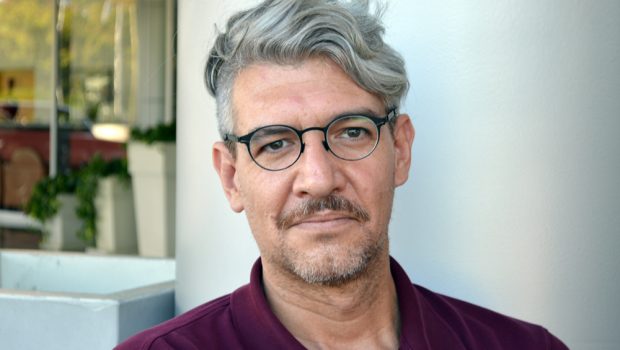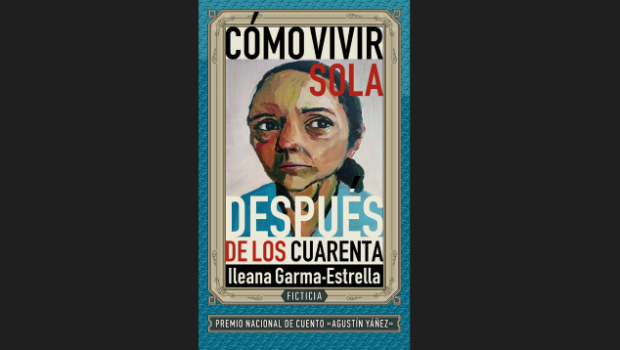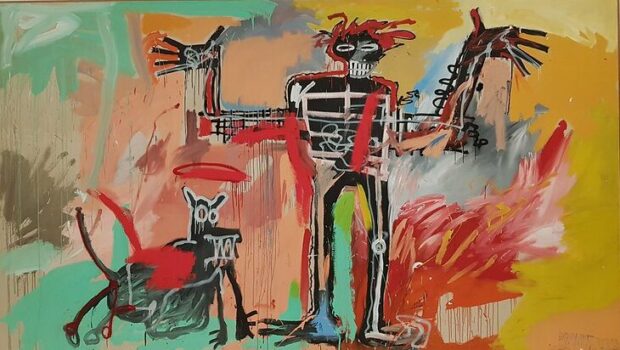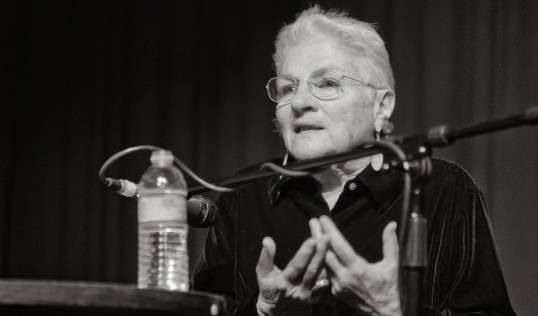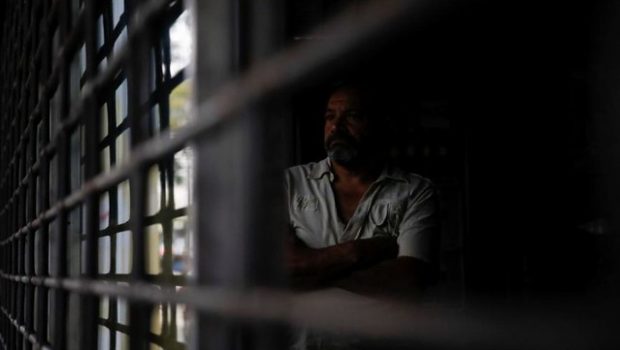BIRTH, ILLUMINATION
Emiliano Monge
Now for the moment that sheds the least light on the life of ourman—a moment we arrive in having crossed the mesa and a span of fifty-five years, two months, and eight and a half days—a moment that, as I said before, would be our beginning if this story weren’t being told by me, or indeed if there were no knot in its thread linking my life to the life of ourman. We will come to this knot in time, but for now, what matters is this moment: María del Pilar y del Consuelo Carnero Villalobos, as the sun beyond the laden fig tree struggles to break through the wooden slats of the old chicken coop, feels a jabbing in her innards and, rolling down her skirts, observes movement at the surface of her belly. She is a number of weeks short of term, yet here are the pains she has only known previously in labor: a fire kindled inside her abdomen, her breasts, and her belly button; and her vagina suddenly like a teeming anthill.
Tearing her eyes as best as she can from that frenzied sensation between her legs, and wresting her patience from the moment she finds herself in—a moment that, as I have already said, sheds little light on the life of ourman and that a different narrator might have used to open the faucet of this tale—María del Pilar y del Consuelo Carnero Villalobos lifts her hand and vigorously waves it through the air, swatting at the tiny white flies that for a number of minutes have been showing an interest in the sweat beading around her pores. This huge brigade rises to the ceiling, where a trio of beetles are sharpening their copper-colored wings and a shadowy moth wakes and begins flying against a beam until, insensate, it drops onto this woman’s contracting belly—at which she, making a pincer of her fingers, grabs it and squeezes until it bursts: her fingertips shimmer with the pale and pearly dust of the dead insect in the same way this moment shimmers in the life of ourman—a moment that rather than lighting up the whole length of a life, sheds light on its fugitive breadth.
María del Pilar y del Consuelo Carnero Villalobos rolls the squashed bug between forefinger and thumb and flings it through one of the cracks in the wall, where a magpie, raising its beak, swallows the insect and lets out a satisfied caw, which sets off the chorus of sounds that signifies the end of every afternoon in this place: frogs and toads, a donkey braying somewhere in the distance, an owl call cutting through the emptiness, and the rasping of cicadas that drifts up like murmured prayers drift up from the temple that ourman will one day raze, condemning it for good; another thing we will come to in time. Now though, deaf as she is, María del Pilar y del Consuelo Carnero Villalobos has no sense of the noises freighting the air outside, but she does know from the waning light in the coop that night is closing in. The sky outside is now an ancient gray mantle, the pasturelands growing turquoise blue and the glowering, metallic scree field is suddenly a deep black pit. I need to be quick about this, get this baby out of me and get out of here, thinks this woman as jab after jab strikes at her innards, increasing in intensity all the time. “Quick, quick,” she says to herself in her own inner language, one she made up many years ago.
Urged on by the fading light, by the sounds she does not hear but can nonetheless sense, and by the violence of the jabs ramming her insides harder and harder, María del Pilar y del Consuelo Carnero Villalobos grits her teeth, leans her weight onto the pile of corn she has been husking, shifts her feet in the black soil beneath her, and, moments before giving birth, arraigns herself: My bones were aching early this morning, my feet have been swollen for days, I should not have let it come to this. Digging her toes into the earthen floor, she takes a deep lungful of air, stretches her neck, tenses her back and, eyes squeezed shut, tries to get up by pushing down on the corn—but cannot. But since the day of Germán Alcántara Carnero’s inception she has felt hard and immovable in the face of any setback, and she takes another breath and repeats to herself: “Have to, have to, have to…” She tries to get up once more, but midway through this attempt a jab lacerates her whole body, an electric shock that expands as dampness expands inside a wall, sapping her strength so that she tumbles onto this dark soil that looks so much like ash.
Forcing her midriff forward and crying out, María del Pilar y del Consuelo sees shadows growing and airborne insects moving: huge green beetles and grain moths and flies and gnats, a pair of cicadas and a fantastic dung beetle whose mercury wings gather the reflections of this dying day—a day as dim as this moment, which has not been called upon to illuminate the length of our thread, but rather to show us the place where our thread joins its bobbin—that is, where the life of a mother and her son are fastened together. María del Pilar y del Consuelo Carnero Villalobos stretches her arms and tenses her back as hard as she can, and succeeds in grabbing onto the low beam that crosses the coop: Now, she thinks. Do it now, even as the thought crosses her mind that she will have to clean up after herself, not wanting any of the intimate results of her childbirth to be found by her husband—who is yet to come back from work at the hacienda on the far side of this plain, part of a land forgotten by god long ago and known by its landowners as “our lands” instead of by its name: the Mesa Madre Buena. Gripping the beam, she tries to straighten up but a contraction shoots along her bones and through her veins. This woman, whom we will call for now womanwhoholds, cries out—almost a howl—while one of the dogs in the yard pricks its ears and lifts its muzzle off the ground, sniffing the air: dry grass and roots; the smell of small birds and of seeds; beyond that, the smell of stones; of brackish water and of rusted metal; and even farther off, a feline smell: the small mountain lions of this region; and of coyotes.
Relieved to find that everything is in its proper place, resting snout on paws, it begins probing the smells of the silhouettes it can tell apart from the evening darkness—a darkness that has rendered María del Pilar y del Consuelo Carnero Villalobos blind as she sits back down, sweating into the earthen floor. While we were outside this woman tried again and again to lift herself up using the beam. It’s like it’s turned to lead, womanwhoholds thinks, looking down at her belly. Bringing a hand up to eye level and moving it away, only now does María del Pilar y del Consuelo realize how dark it has become, and finds herself traveling through time, with no intention to do so. She is suddenly in that long-ago night when her parents made her leave their home on the coast and come to this plain, thereby saving her from the epidemic that would soon claim them and her siblings when it rampaged along the Pacific coast and through the sierra inland. How long until you come and join me? María del Pilar remembers asking that night. In response, her father lifted a number of fingers on one hand—she could not make out the number in the darkness.
María del Pilar y del Consuelo, ridding herself of these inner shadows with a shake of her head, says to herself, “Maybe if I do it all at once, pull with my arms and push with my legs, maybe I can make it to the hut that way, use a bit of ash to wipe myself with, find some clean rags.” Jaw clenched—as I have already said, this woman made the decision, a little over half a year before, never to give in to anything again—María del Pilar y del Consuelo, placing supporting hands beneath her belly and wheezing, becomes mired again in the shadows that are her own shadows. She sees her parents again and, perhaps realizing that this moment is not just any moment, she wonders why she never heard from them again, though she’d never known much about them anyway, only this: her father was born on this mesa but fled to the coast at a very young age and entered the army only to become a deserter later on. Her mother was a native of these lands, orphaned young and taken in by a Chinese family that had come to work the railroads, whose language she never learned, not a single word. Before María del Pilar y del Consuelo can shake the memory from her head once more, a further cramp or shock or spasm rocks her.
Curled up on the floor, womanwhoholds vomits up the harsh and rasping sound of the pain that is wracking her: a cry so curdling and cold it disturbs the world. “Have to get this baby out,” María del Pilar y del Consuelo says to herself: “I can’t stay here,” lifting her head from the patch of mingled sweat and earth, getting her hands onto the corn again, lifting herself onto the chair, and looking over at the door, in which a shadow abruptly appears. The dog has come in, and is agitated at the sight of the woman, having never seen her overcome like this: her arms limp, hair dripping wet, breathing both deep and shallow, and a very strange scent about her.
Like a drowning man who sees he is not going to be saved, womanwhoholds fastens her hands onto the beam, tenses her back, and pushes down through her legs—one second, two, three, four seconds—until finally she has succeeded in straightening her legs. In the doorway, the dog sniffs the ground nervously and watches as its mistress straightens her back and, eyes on her feet, lets go of the beam. Her eyes have adjusted to the darkness and she can discern the scabs on her hands that could easily be moles, and on the beam—as well as on the ground and the walls and even the roof of this coop—a covering of broken eggshells, dry animal shit, bird feathers, and bloodstains, all of it evidence of a cruel slaughter. Sickness emerged victorious from this battlefield—a sickness known among the men and women of the plain as swollen kidney and defined by the experts in the following way: Worse even than diarrhea, or the endolimax nana parasite, bird flu, or the diseases known as “bluecomb” and “blackbreast,” the “swollen kidney” sickness submits the animal to horrific bouts of pain and condemns it to die a very slow death. Known also as “Marek’s Disease,” this illness sends the infected animal’s temperature soaring, weakens its digestive system, and produces a thick, foul-smelling diarrhea. The vital organs eventually become inflamed and the nervous system shuts down. The final state of this illness is characterized by the innards of the bird rotting, forcing it to expel, via its anus and beak, a violet-colored mucus that contains its own liquefied organs, a mucus that furthermore will infect the ground of the pen or coop irrevocably. (Perhaps this is why only pigs, and the occasional cow, are now raised on this mesa.) In its earliest stages, however, the only effect of Marek’s Disease, named after Julius Marek, is to numb the legs of the infected bird. Once it is infected, its legs will give way constantly, just like the legs failing to support María del Pilar y del Consuelo Carnero Villalobos, whose knees wobble, ankles shake, and hips sway like a ship lists and sways in a storm. A couple of seconds later, womanwhoholds collapses, and as she lies on the ground some of the small white flies come to rest on her belly—a belly that, seen thus, in darkness and beneath her clothes, resembles more closely the swollen belly of a drowned person than that of a woman entering labor.
The dog grows increasingly unsettled, its sense of smell awash with the odors of this coop and with the smell now being exuded by María del Pilar y del Consuelo Carnero Villalobos. Instinct tells it to place a paw tentatively forward, keeping its eyes on the heap that is womanwhoholds, who feels the life inside her begin to writhe more violently still, the rage in its movements tearing at the membranes that separate her insides from the outside world—and her legs part. All at once, a draft of wind sweeps through the coop, and the dog and the woman turn their heads. The night has brought with it the gusts of sickness that blow across this mesa every six or seven months—winds that stop most plants from growing and that some people say come from the mines beyond the ridge of the mountains, and that others say originate in those places along the coast where animals are slaughtered. Here in this place where a great dam will one day be built, a dam that I have said we will visit when the time comes, winds stunt the growth of anything that is not an agave plant, a certain clumpy grass local to this area, mesquite trees, certain cacti, the odd thistle, the small, spiky bisnaga, the enterolobium pods, pepper trees, or the occasional fig tree.
The sulfurous dust and the infected wood chippings borne by these winds of sickness arrive in the coop accompanied by the sound of a bird flapping its wings somewhere in the distance, the smell of a decaying rabbit carcass somewhere else, and the sound of a rattlesnake nearby. María del Pilar y del Consuelo, though, does not pick up on the stink carried in by this wind—a smell so putrid that it forces the other dogs to their feet—and neither is she aware, of course, of the sounds accompanying the wind. She can contemplate nothing but what is going on in her innards, this struggle between her body and this other, smaller, seemingly molten body. Spreading her legs as wide as she can and resting her elbows on the floor, womanwhoholds lays her head back against the ground, raises her legs, and hooks her ankles over the beam she used a few moments ago to lift herself up. Above her body, in the space intersected by her moans and exclamations, the insects and bugs begin to swarm, frenzied: cicadas striking the roof in search of an opening, flies going up in eddies again, a scorpion raising its tail as the shimmering dung beetle approaches, and the spiders, feeling hopeful, poised at the edges of their webs.
Outside, meanwhile, the dogs that have been roused by the wind hurry near, approaching the place where the scent of their alpha mingles with that of María del Pilar y del Consuelo and with that of a creature who is new to their senses—a being who has decided the time has come to cut through the last two layers of the warm membranes that have until now held him inside his mother’s womb. Her face changes—tenses with alarm—and she turns pale and trembles and her face seems to dissolve again and again. As her son presents his downy head to the world, womanwhoholds, little aware of why or of how she’s doing so, contracts her muscles, squeezes her hips, flexes the tendons in her legs, and in the language she invented so many years ago, says: “I won’t let you out…I’m keeping you in me forever…I won’t let him hurt you, too.” It has just struck María del Pilar y del Consuelo Carnero Villalobos that her son—she somehow knows it is a boy—will also be her husband’s son, and this simple fact is terrifying to her. It is curious that it should be here, in the place where ourman will one day seek to alter the unalterable, that María del Pilar y del Consuelo Carnero Villalobos is now also attempting to alter the unalterable.
*An excerpt from The Arid Sky by Emiliano Monge
Publication date: August 14, 2018
Contact Nathan Rostron, Editor and Marketing Director: nathan@restlessbooks.com, 718.473.6298
Posted: July 19, 2018 at 9:59 pm


